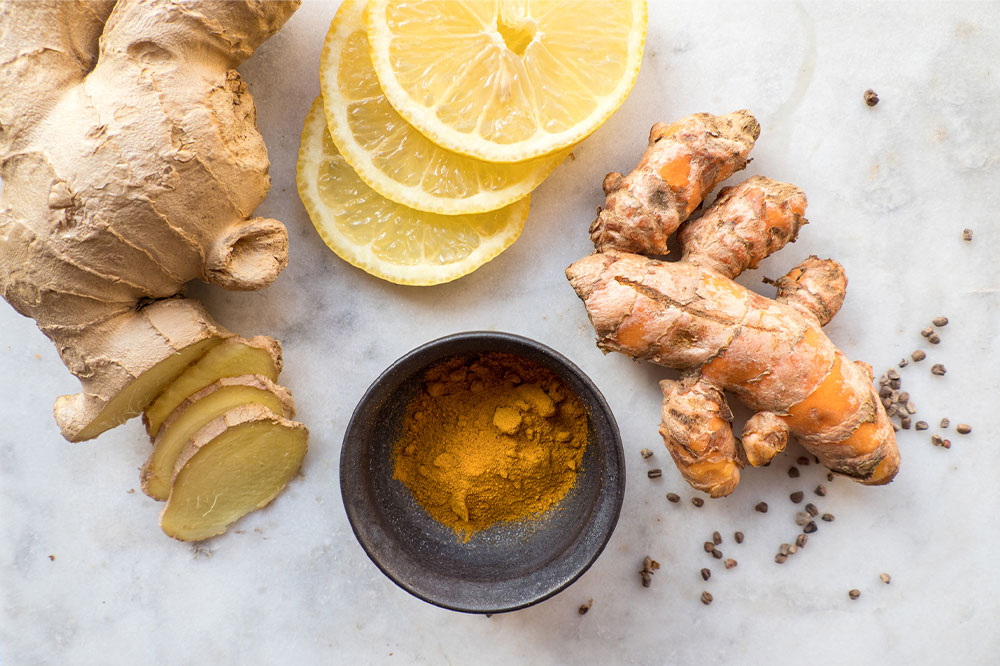Essential Anti-Inflammatory Foods to Reduce Arthritis Symptoms Naturally
Discover the top anti-inflammatory foods that can naturally alleviate arthritis symptoms. This comprehensive guide details how fatty fish, garlic, ginger, broccoli, nuts, and berries can reduce joint pain and improve mobility. Incorporate these foods into your diet for effective arthritis management and enhanced joint health, supported by scientific research and expert recommendations. A natural approach to easing arthritis discomfort starts with smart dietary choices that promote inflammation reduction and overall well-being.

Key Anti-Inflammatory Foods for Alleviating Arthritis Discomfort
Arthritis is a common term that encompasses a diverse group of joint disorders, affecting millions worldwide regardless of age, gender, or ethnicity. Characterized primarily by joint pain, swelling, stiffness, and reduced mobility, arthritis can significantly impair quality of life if not managed properly. Among the many factors influencing arthritis symptoms, diet plays a crucial role. Certain foods have powerful anti-inflammatory properties that can help manage symptoms, support joint health, and improve overall well-being. This comprehensive guide explores some of the most effective anti-inflammatory foods that people with arthritis can incorporate into their daily diet for natural relief and improved joint function.
Fatty Fish: A cornerstone of anti-inflammatory diets, fatty fish such as salmon, sardines, mackerel, and trout are loaded with omega-3 fatty acids—EPA and DHA—which have been extensively studied for their ability to reduce inflammation. Regular inclusion of these fish in your weekly meals can lead to a significant reduction in joint stiffness, pain, and swelling. Omega-3s also help inhibit inflammatory cytokines and enzymes, which are elevated in arthritis. Additionally, fatty fish are a rich source of vitamin D, crucial for immune regulation and potentially mitigating rheumatoid arthritis symptoms. The American Heart Association recommends consuming at least two servings of fatty fish per week for optimal health benefits. Incorporating grilled or baked salmon, sardine salads, or mackerel stews can contribute markedly to joint health and overall inflammation reduction.
Garlic: Known globally for its potent health benefits, garlic contains bioactive sulfur compounds such as allicin, which possess strong anti-inflammatory and immune-modulating properties. Scientific studies suggest that garlic consumption can help decrease joint pain, swelling, and stiffness by inhibiting inflammatory pathways. Beyond its effects on arthritis, garlic promotes cardiovascular health and supports immune function, making it a valuable addition to an anti-inflammatory diet. Incorporate garlic into your meals by adding fresh cloves to salads, stir-fries, and roasted vegetables for maximum benefits.
Ginger: This aromatic root has been used for centuries in traditional medicine to treat inflammation and pain. Modern research confirms that ginger contains bioactive compounds like gingerol, which possess potent anti-inflammatory and antioxidant properties. Consuming ginger in fresh, dried, or powdered form can help alleviate knee pain, reduce inflammatory markers, and improve joint mobility. ginger can be added to smoothies, teas, soups, or used as a spice in cooking, providing both flavor and therapeutic benefits for those suffering from arthritis.
Broccoli: As a member of the cruciferous vegetable family, broccoli is rich in sulforaphane, a compound that has been linked to decreased inflammation and reduced joint degeneration. Regular consumption of broccoli has been shown to lower levels of inflammatory markers in the body, thus helping to alleviate arthritis symptoms. Including broccoli in your diet—either steamed, roasted, or raw—can contribute to decreased joint pain and enhanced joint health over time. Its high vitamin C content also supports collagen synthesis, essential for joint tissue repair.
Nuts, Especially Walnuts: Walnuts are an excellent source of plant-based omega-3 fatty acids, polyphenols, and other nutrients that help lower inflammation and support joint health. Studies indicate that walnuts can reduce the severity of rheumatoid arthritis symptoms and improve joint function. Incorporate a handful of walnuts into your daily diet as a snack, or add them to salads, oatmeal, or yogurt for an anti-inflammatory boost. Their nutrient profile also supports cardiovascular health, making them a valuable food for overall well-being.
Berries: Berries such as blueberries, strawberries, blackberries, and raspberries are loaded with antioxidants, vitamins, and flavonoids like quercetin and rutin. These compounds help neutralize free radicals, reduce oxidative stress, and lower inflammation in the body. Eating two or more servings of berries weekly has been associated with decreased inflammation markers and relief from joint swelling and pain. Berries can be enjoyed fresh, added to smoothies, salads, or incorporated into desserts, providing both flavor and health benefits in an easy-to-prepare form.
Incorporating these anti-inflammatory foods into your daily diet can serve as a natural strategy to manage arthritis symptoms effectively. Along with proper medical treatment and lifestyle adjustments, dietary choices play a vital role in reducing inflammation, supporting joint health, and enhancing overall quality of life. Consistency and a balanced approach are key, and consulting with a healthcare professional or a registered dietitian can help tailor dietary plans suited to your specific condition and nutritional needs.





